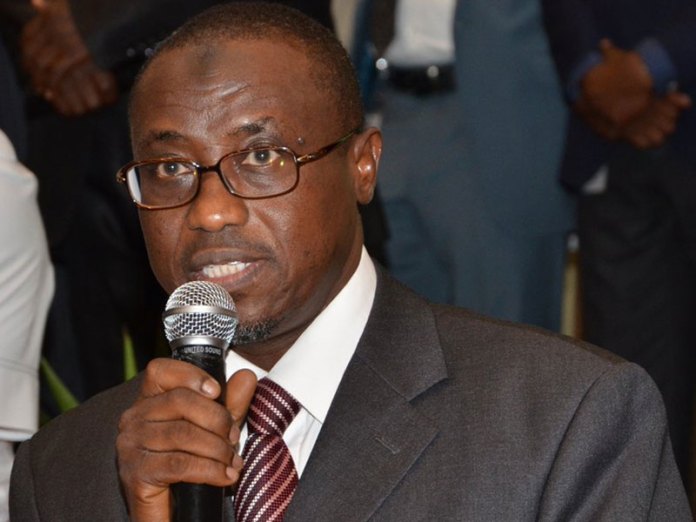- Refining, Regulatory Challenges Worry Oil Industry Stakeholders
After over 60 years of commercial production of crude oil and gas, the country is still grappling with low refining capacity and continues to depend largely on importation to meet its fuel needs.
Many Nigerians, including industry stakeholders, have over the years lamented the ailing government-owned refineries, which were built between 1965 and 1989.
The refineries, which are located in Port Harcourt, Kaduna and Warri, have a combined installed capacity of 445,000 barrels per day, but have continued to operate far below the installed capacity for many years.
The proposed rehabilitation of the refineries by the current government has suffered delays as the third-party financiers for the project have yet to be announced, more than a year after the Nigerian National Petroleum Corporation said 28 firms had expressed interest in their financing.
The refineries lost N96.34bn in the first nine months of last year, compared to a loss of N95.09bn recorded in the whole of 2017, according to the NNPC.
Kaduna refinery, which only processed crude oil at 4.7 per cent capacity utilisation in January last year, was idle from February to September, 2018.
The Warri refinery was idle in January and September, but processed crude oil in seven other months, while the Port Harcourt refinery was idle in March, July, August and September but processed crude in the other months.
“We just have to look for ways to ensure adequate internal refining. The advantage of internal refining is that we will have sufficient petroleum products. There is no reason why a litre of kerosene or diesel should cost above N200,” a petroleum expert, Mr Bala Zakka, told our correspondent in a telephone interview.
He said the country had been relying on fuel imports for many years, adding that adequate domestic refining would help the country free itself from foreign currency pressure.
“The pressure on our external reserves will also be minimised,” he added.
According to Zakka, the global oil and gas industry is becoming highly competitive, and energy demand is increasing with nations now coming up with innovative ways of making sure they reduce their dependence on other countries for their sources of energy.
He said, “The United States is looking for innovative ways to make sure they take advantage of their shale oil and make it suitable for refineries. Asian countries like China and India are thinking in the same direction.
“So, for Nigeria, what is going to happen is that there is going to be much less demand for the Nigerian crude oil, and global demand may even go down because countries are looking inwards for innovative sources of energy apart from the other sources of energy that we call renewable energy.”
An energy analyst and Partner at Bloomfield Law Practice, Mr Ayodele Oni, also noted that despite the abundant oil and gas reserves in the country, “we are not doing enough in terms of value addition in the country.”
He said, “A major worry for me is the uncertainty created by the non-passage of the Petroleum Industry Bill. It is important government says it is not passing any new law for another five years than for the uncertainty to exist.
“Most times, investments in the oil and gas industry are long-term projects. So, if the rules change midway, it can be a big problem. I think it is better to have harsh laws with certainty and consistency than to have uncertainty and inconsistency because businesspeople plan on the basis of laws and policies.”
A key obstacle to the growth of the industry has been widely described as the regulatory uncertainty caused by the delay in the passage of the PIB.
The PIB, which has been in the works since 2008 when it was first introduced to the legislature, suffered setbacks in the 6th and 7th National Assembly.
The bill seeks to change the organisational structure and fiscal terms governing the industry.
Currently, before the 8th National Assembly, it was split into four parts — Petroleum Industry Governance Bill, Petroleum Industry Administration Bill, Petroleum Industry Fiscal Bill and Petroleum Host Community Bill — to fast-track its passage into law.
The Senate on May 25, 2017, passed the PIGB, which seeks to unbundle the NNPC and merged its subsidiaries into an entity.
After its passage by both the Senate and the House of Representatives, the PIGB was transmitted to President Muhammadu Buhari for assent in July last year to enable it to become law but it emerged in August that Buhari declined to assent to it.
The Senior Special Assistant to the President on National Assembly Matters (Senate), Ita Enang, identified the provision of the PIGB permitting the Petroleum Regulatory Commission to retain as much as 10 per cent of the revenue generated as one of the reasons Buhari declined to assent to the bill.
A former President of the International Association for Energy Economics, Prof. Wumi Iledare, stressed the need to address the uncertainty surrounding the industry’s governance and institutional framework.
“We all thought the PIGB would be passed but it wasn’t. I think if we want 2019 to start on a good note for the industry, we need to remove the cloud of this uncertainty with respect to the governance of the industry,” he told our correspondent.

 Forex3 weeks ago
Forex3 weeks ago


 Naira2 weeks ago
Naira2 weeks ago
 Billionaire Watch2 weeks ago
Billionaire Watch2 weeks ago




 Naira2 weeks ago
Naira2 weeks ago




 Naira4 weeks ago
Naira4 weeks ago




 Naira2 weeks ago
Naira2 weeks ago


 Naira7 days ago
Naira7 days ago
 Banking Sector4 weeks ago
Banking Sector4 weeks ago


















